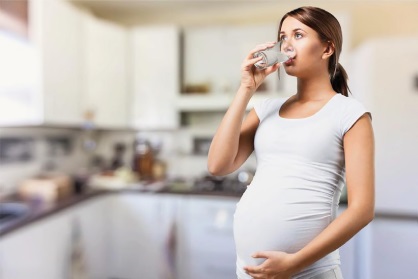WHAT'S HAPPENING
SLIGHTLY HIGHER RISK OF AUTISM DIAGNOSIS IN AREAS WITH MORE LITHIUM IN DRINKING WATER
Pregnant women who drink tap water containing high levels of lithium are more likely to have children with autism, a new study warns.
Researchers analyzed data from Denmark and found that mothers-to-be drinking water with the highest lithium levels were almost 50 percent more likely to have autistic children.

WATER WARNING: Naturally occurring lithium in drinking water may be a novel environmental risk factor for ASD that requires further scrutiny.
The team from UCLA found that the higher the lithium levels in the water supply, the more likely women were to give birth to babies with autism. Study authors warn that lithium levels in water could become more widespread in the near future due to lithium battery use and disposal in landfills — which could lead to an increase in developmental disabilities such as autism.
Researchers say this is one of the first ever studies to identify R naturally-occurring lithium in water as a potential risk factor for autism. The team studied data collected from Denmark over 16 years, between 1997 and 2013. They chose to use the Danish data due to the country having the lowest consumption of bottled water in Europe, meaning most of the population drinks tap water.
The study looked at 8,842 participants with ASD born between 2000 and 2013 along with 43,864 control subjects. The study team also took into account sociodemographic factors and air pollution levels while conducting stratified analyses accounting for the child's birth year, sex, and urbanicity. The findings, the authors state, were not changed after adjusting for air pollution exposure or stratified analyses.
The team analyzed lithium levels in 151 public waterworks, which make up about half of the entire country's waterworks. The team noted each mother's address at the time of pregnancy and accounted for any moves they may have made. It's worth noting that the study's authors assume that lithium level estimates in Denmark's drinking water are generally stable over time, as well. This means the exposure was also consistent.
The study's results? "Naturally occurring lithium in drinking water may be a novel environmental risk factor for ASD development that requires further scrutiny," the authors write. The higher the level of lithium in the water supply, the higher risk of ASD. In the highest quartile, the risk was as high as 46 percent compared with the lowest.
Further, they found that ASD is four times more common in males than females in Denmark – with slightly stronger associations between ASD and mothers and children living in urban centers versus rural or provincial areas. People with ASD were also found to have a smaller birth weight than the control participants.
Lithium is a naturally-occurring alkali metal found in some groundwater when water interacts with minerals containing lithium or saline water.
Experts say it's important to note that the research can't show that lithium exposure leads directly to an autism diagnosis.
Further study is required, said study co-author Dr. Beate Ritz, a professor of neurology in the David Geffen School of Medicine at UCLA, and a professor of epidemiology and environmental health at the UCLA Fielding School of Public Health. •
